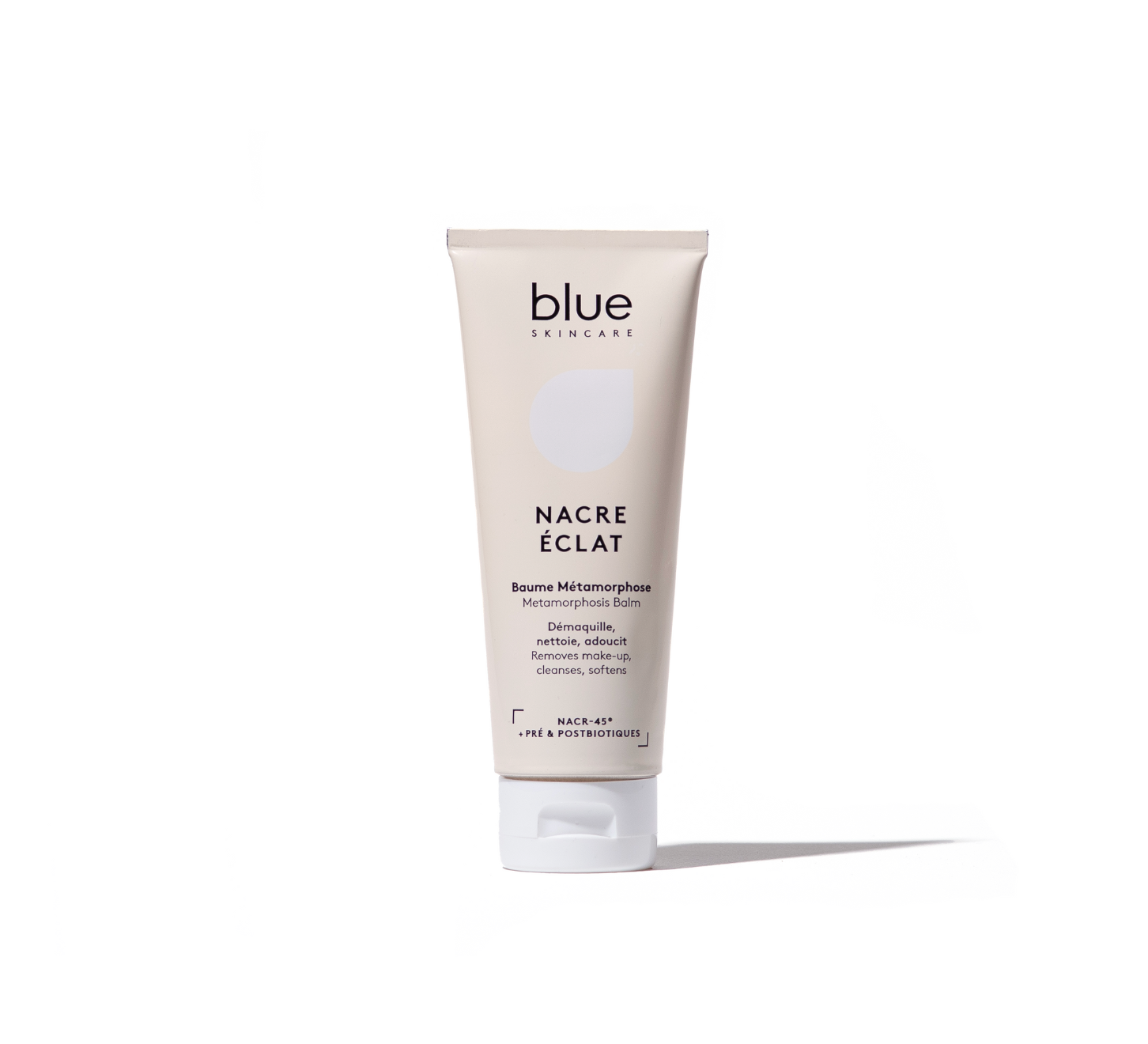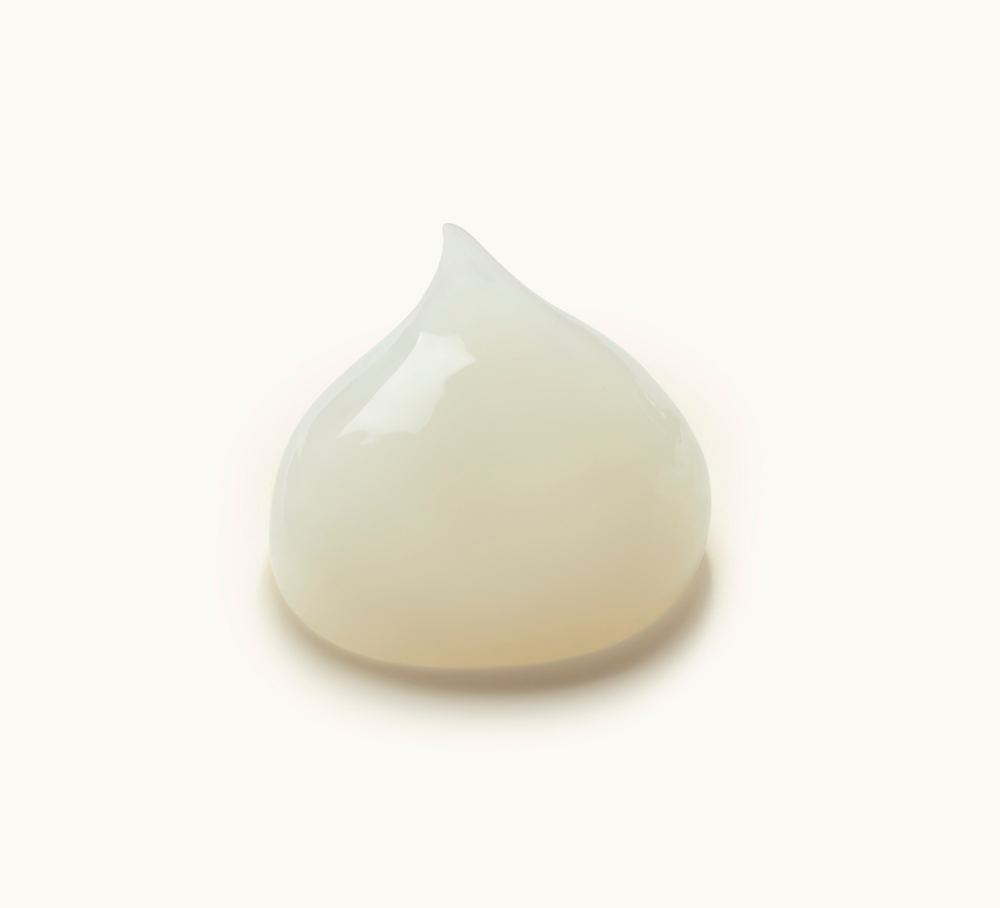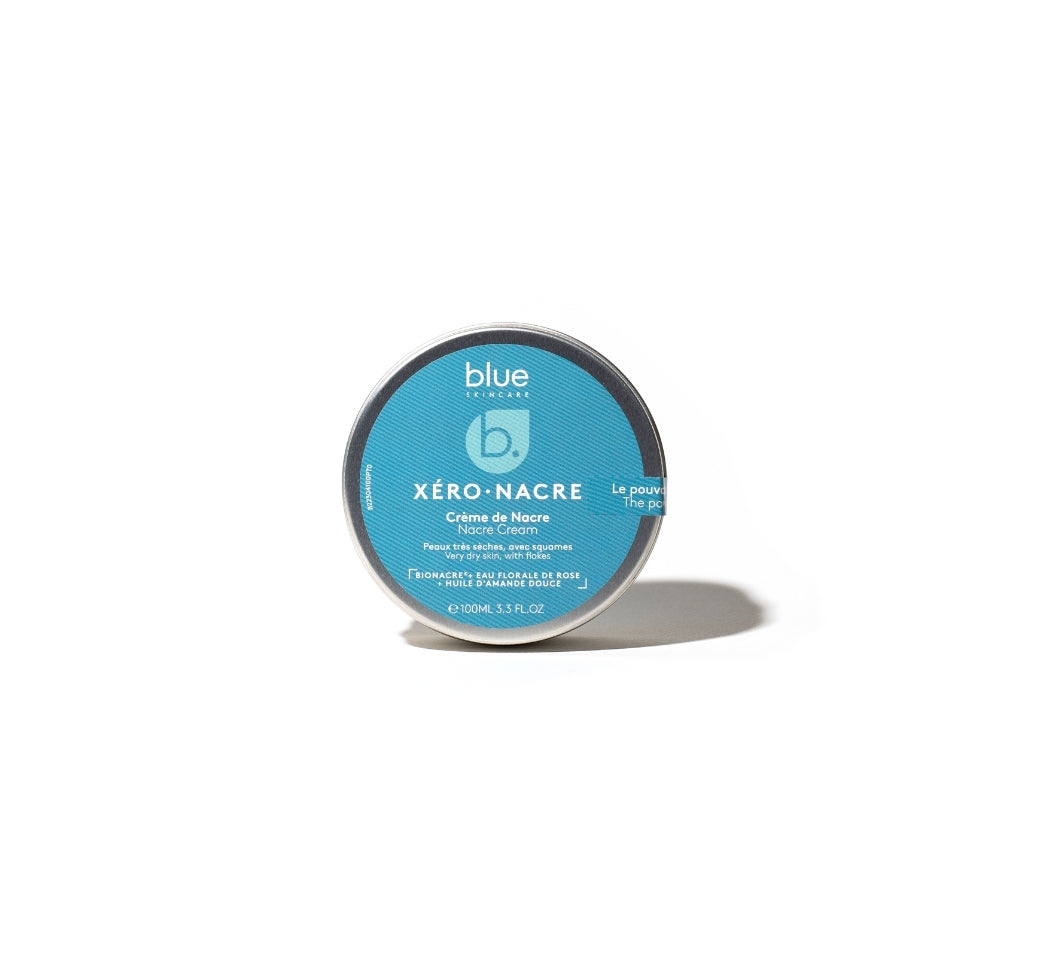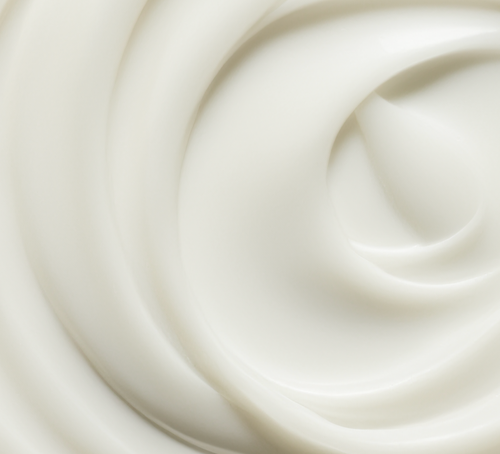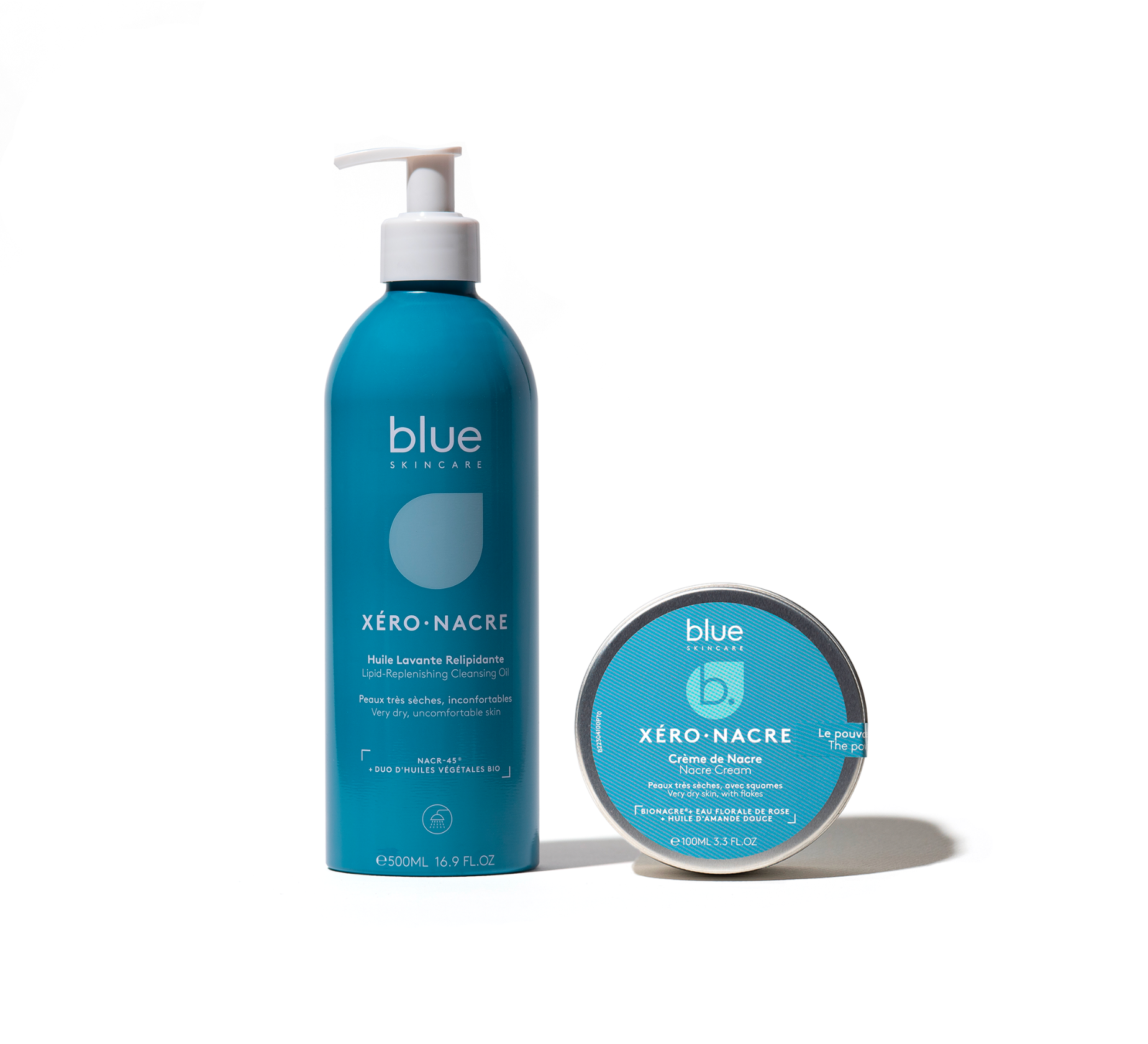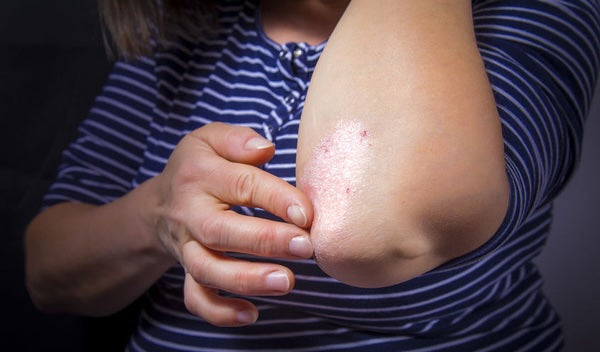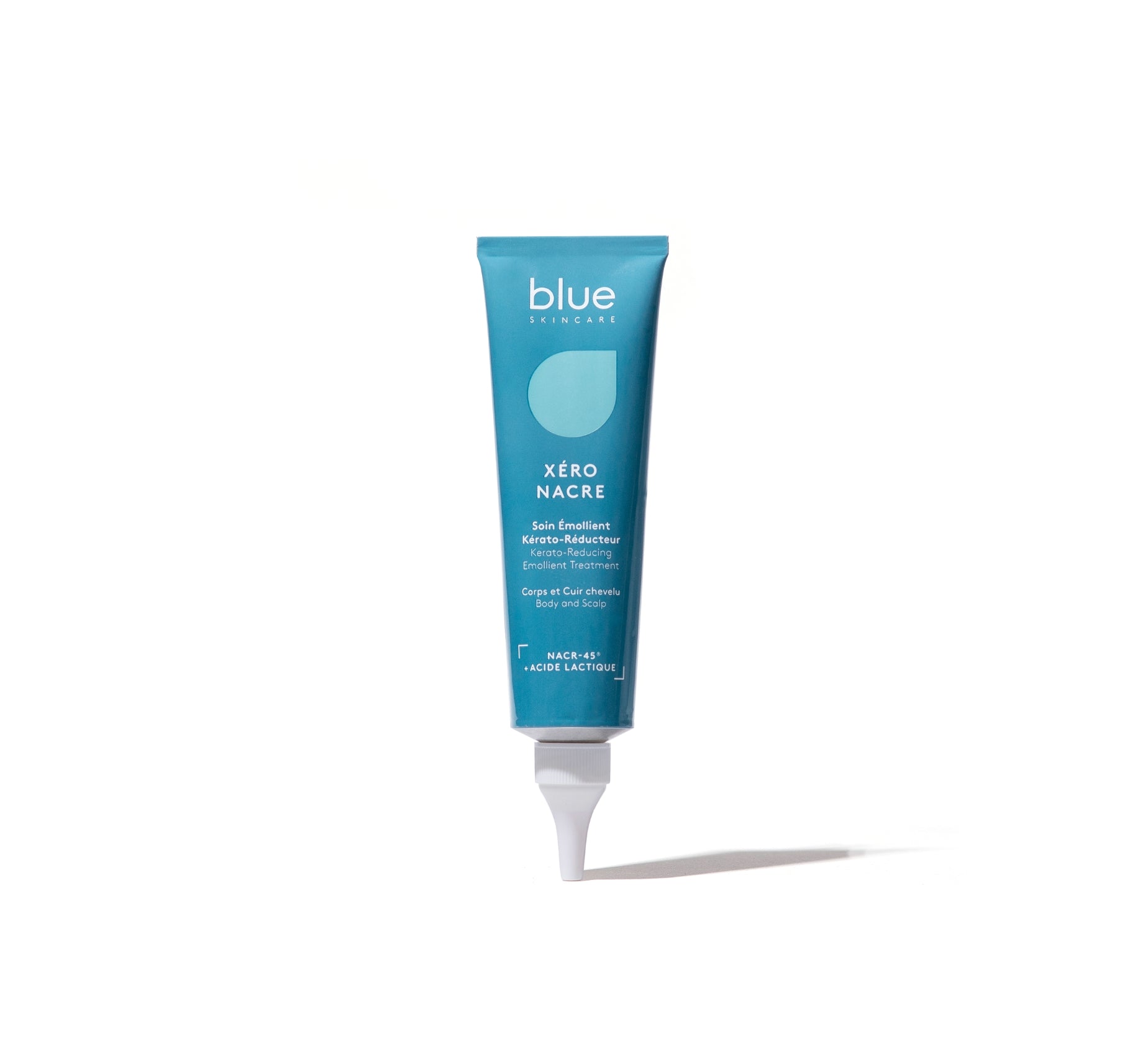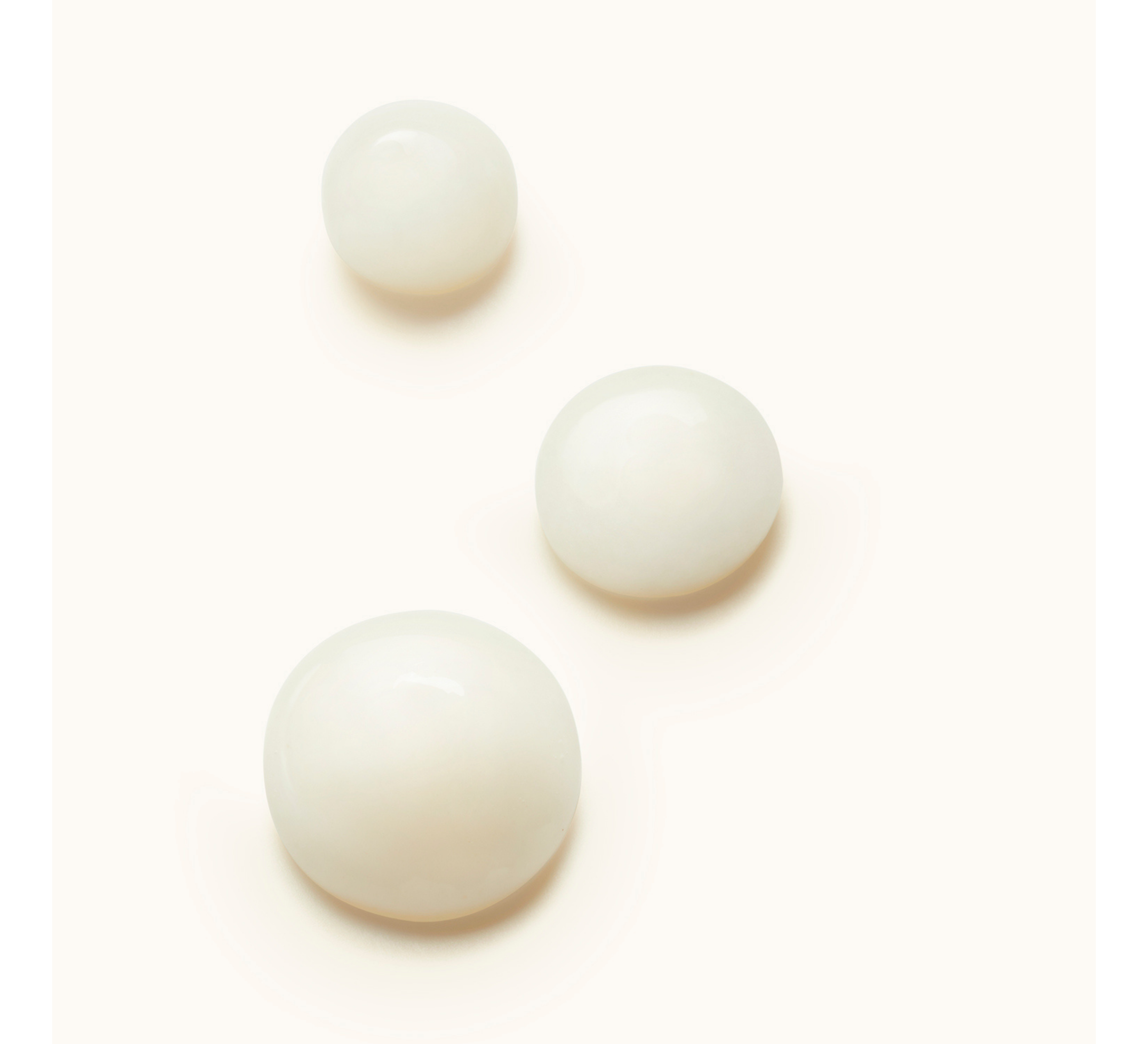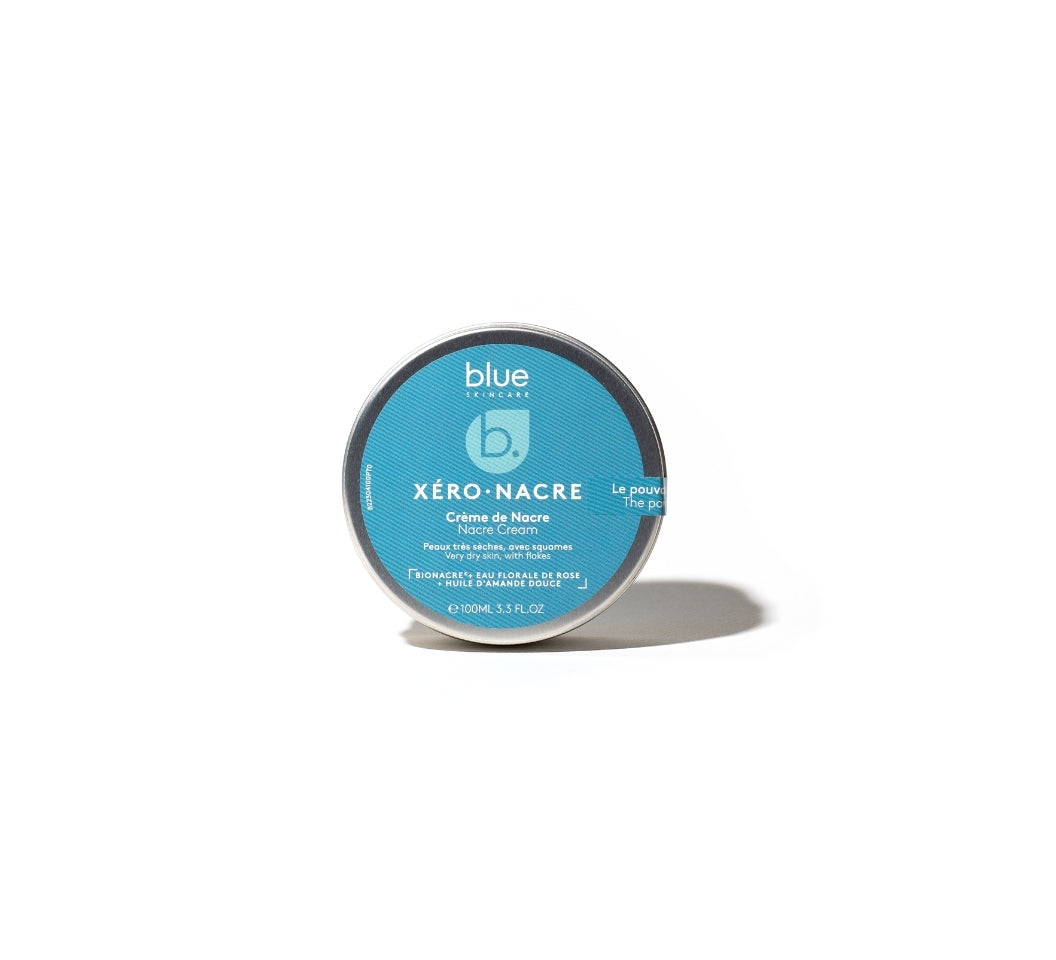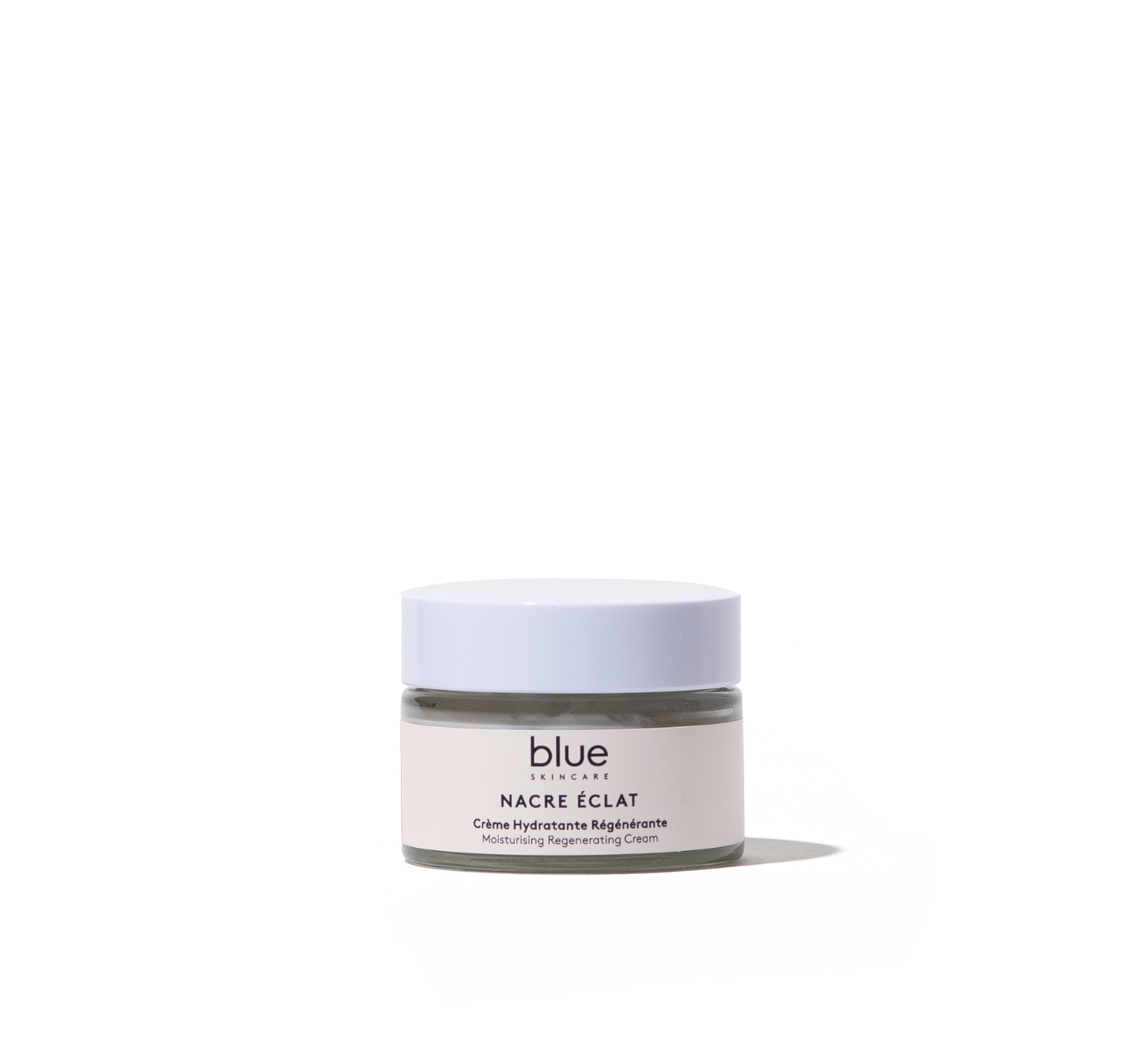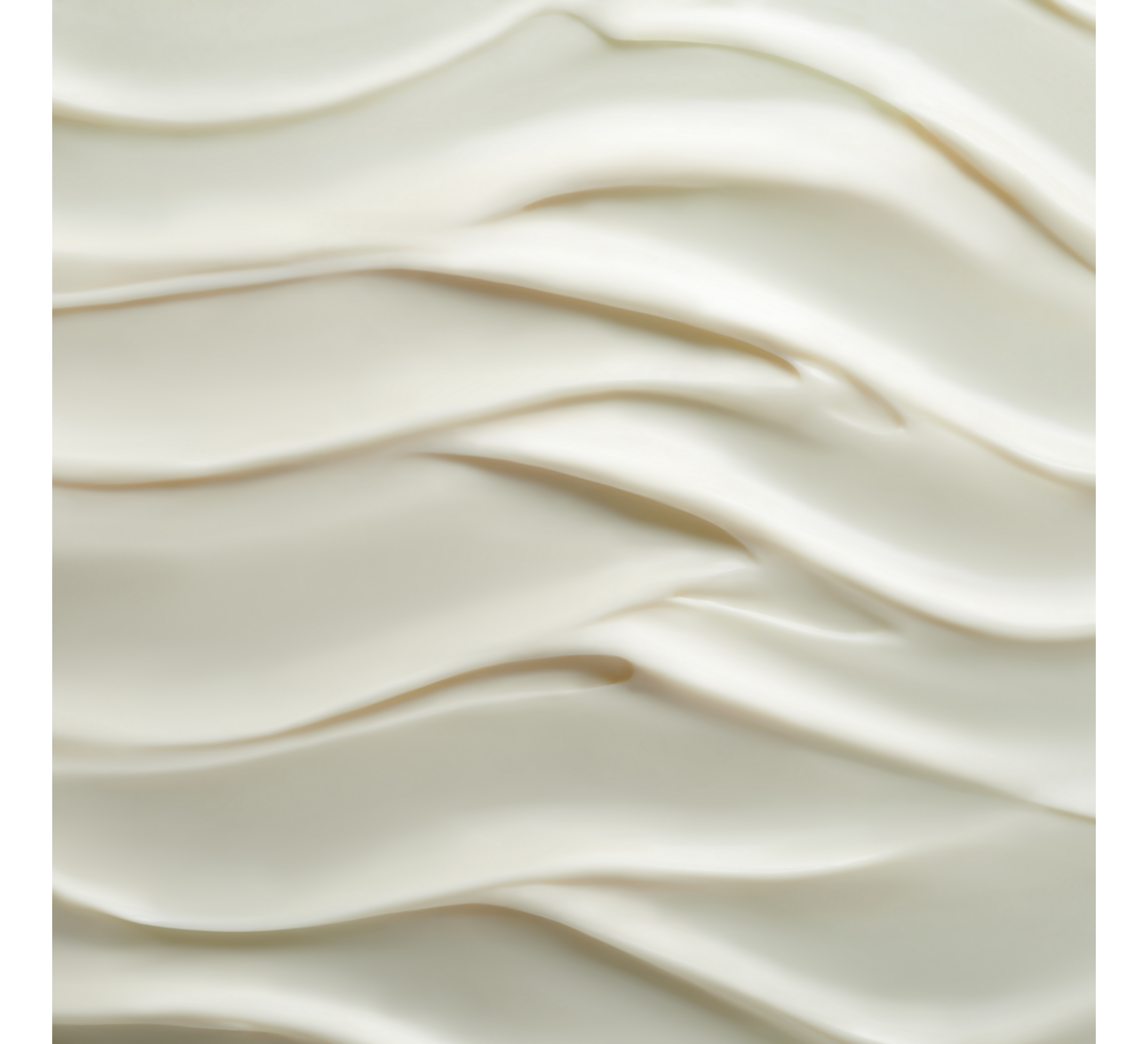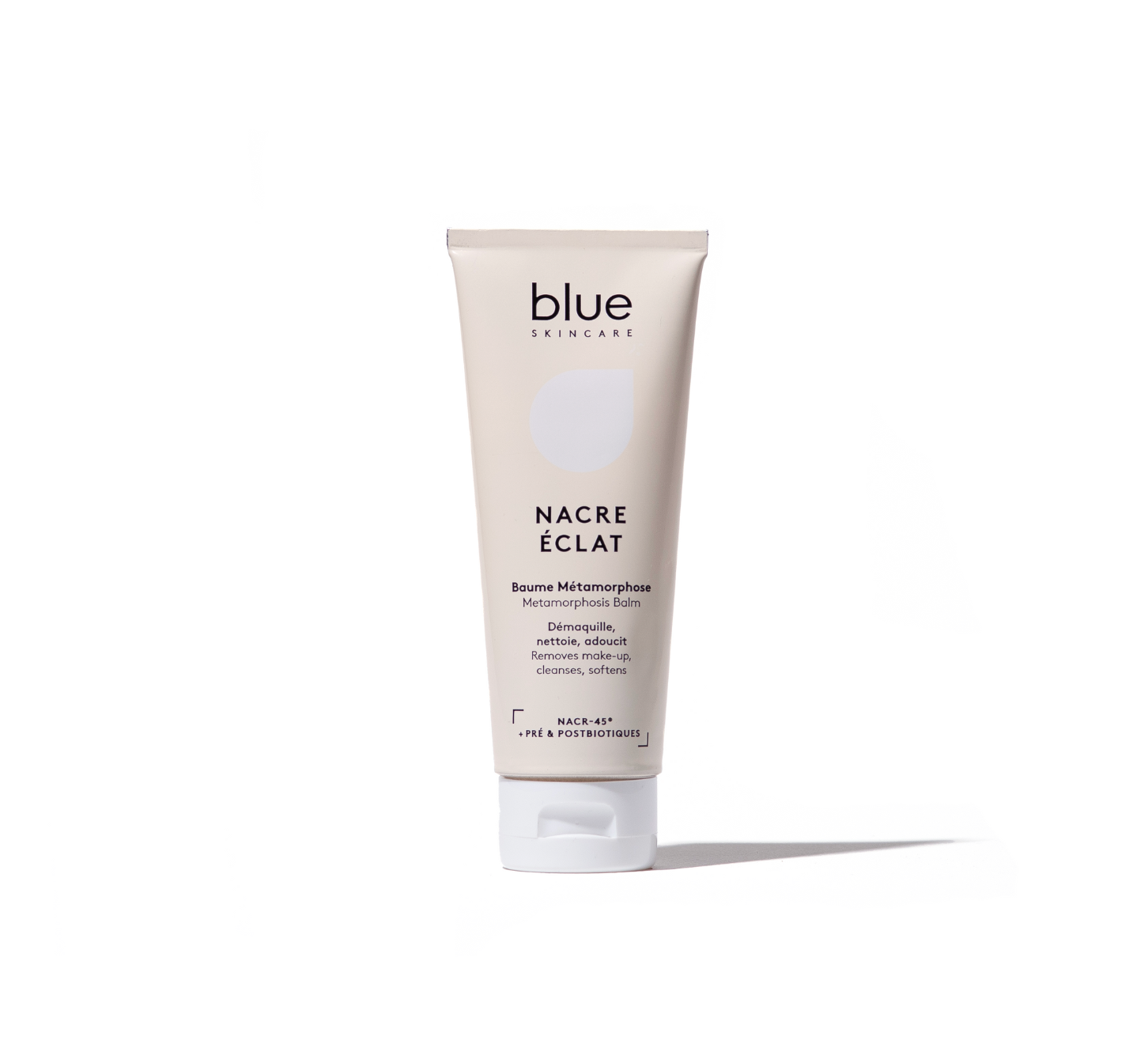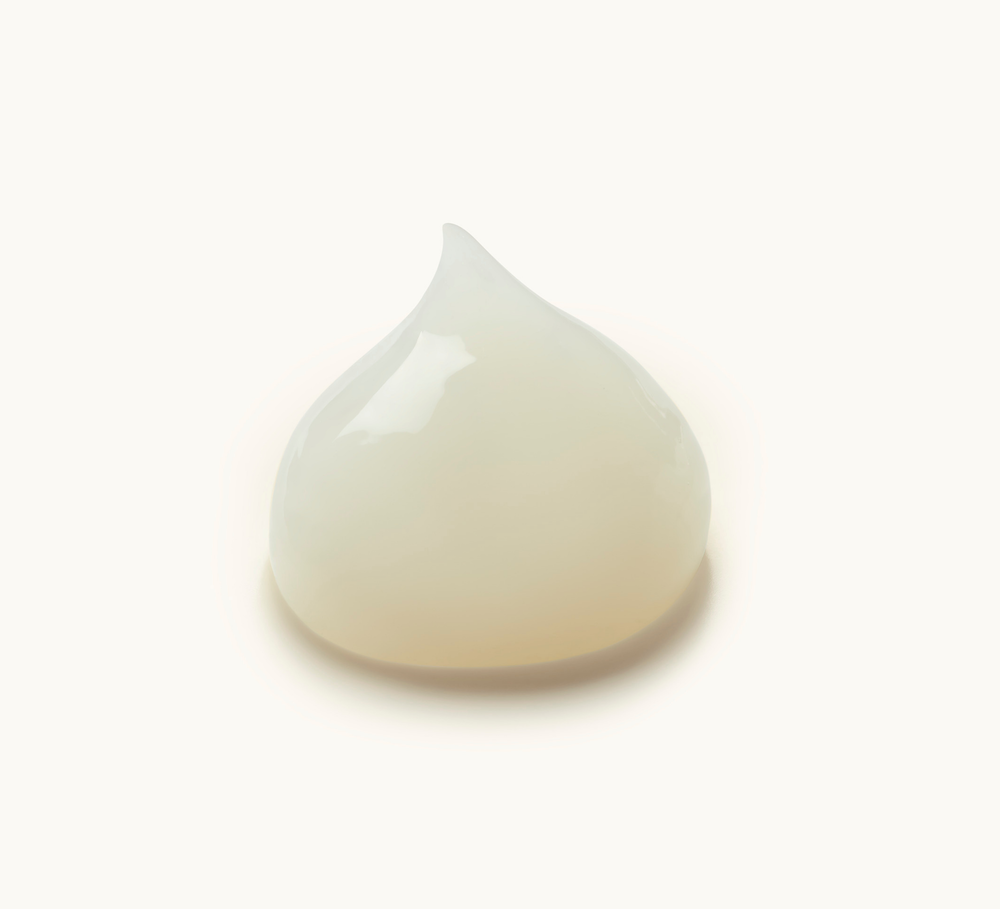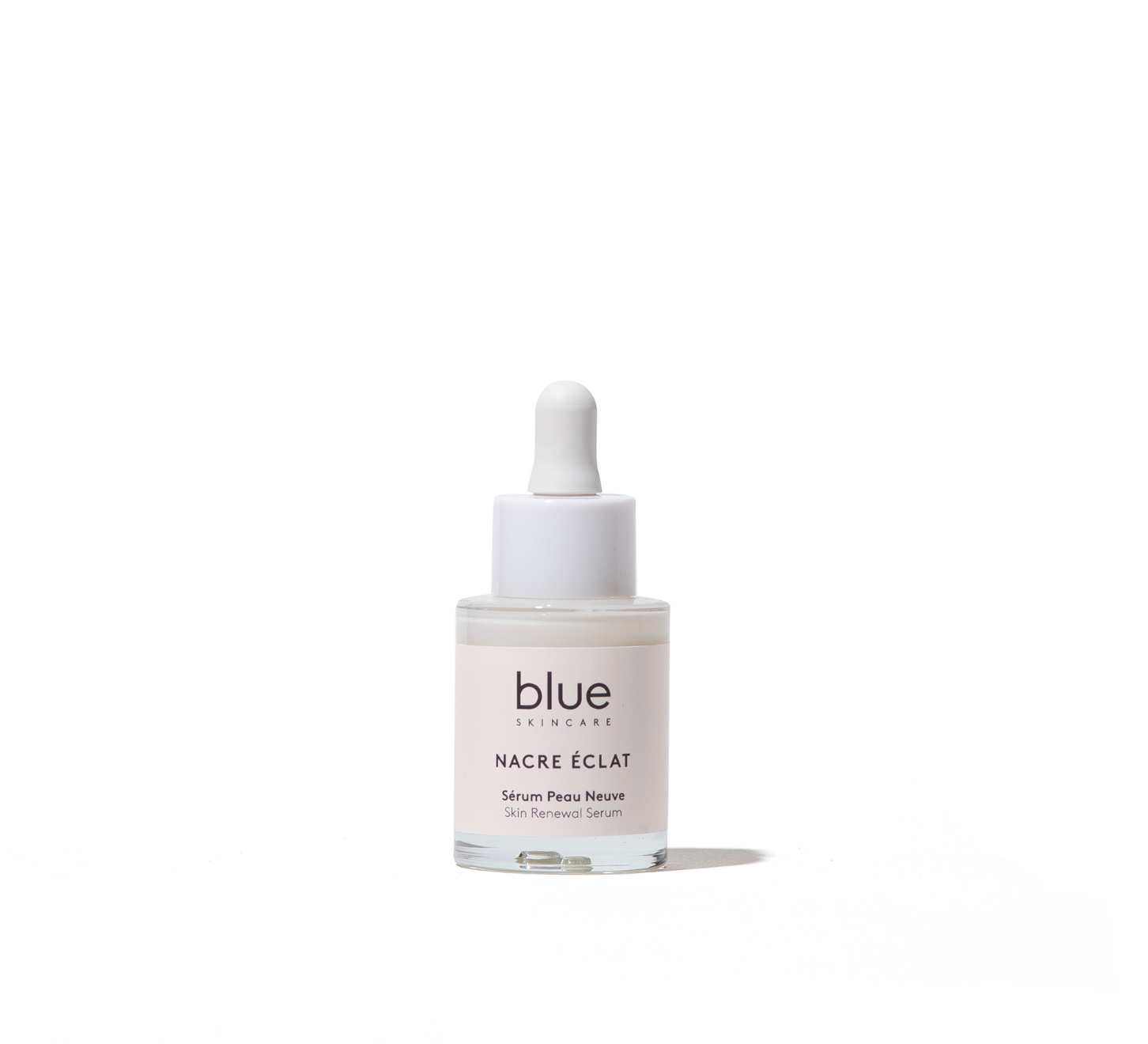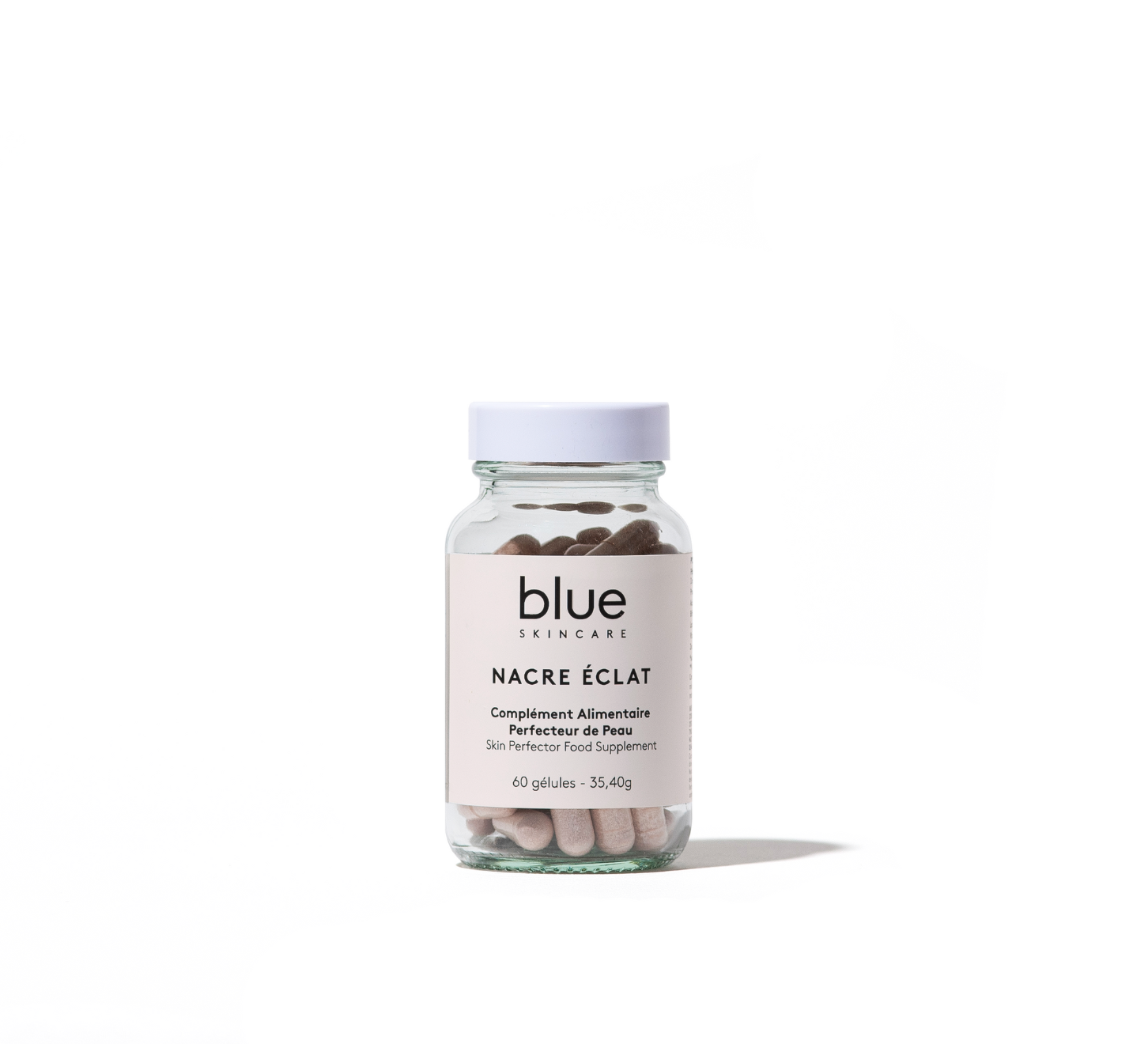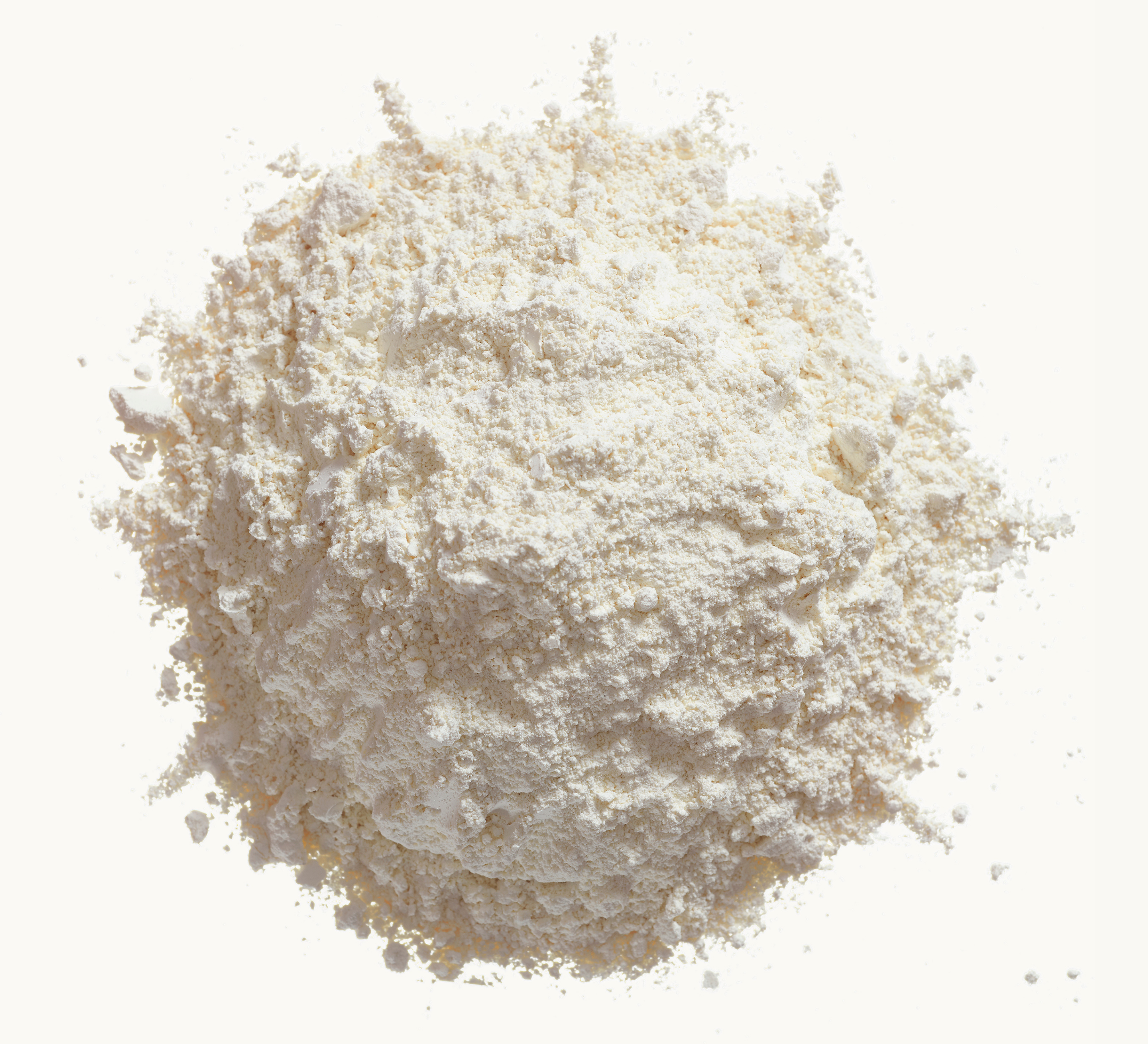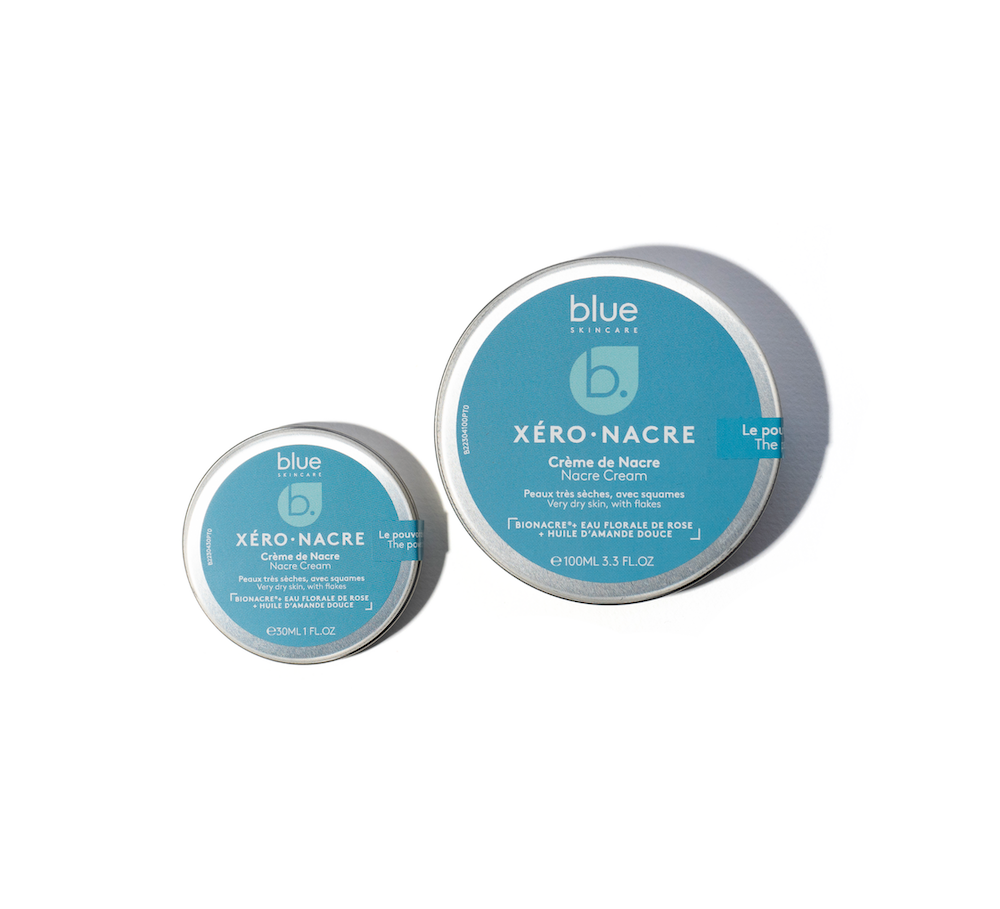Common areas of psoriasis occurrence
Psoriasis can develop on any part of the body , but some areas are more commonly affected than others. Here are the places where psoriasis can appear:
The Scalp
Scalp psoriasis appears as silvery scales and can often be mistaken for dandruff. It can spread beyond the scalp, affecting the forehead, neck, and ears.
Elbows and Knees
Elbows and knees are common sites for psoriasis. Plaques can be thick, red, and scaly, sometimes itchy.
Back and Chest
Psoriasis can develop on the torso and back , creating red, scaly patches that can be uncomfortable
The Nails
Psoriasis can also affect the nails, causing changes in color and texture, thickened nails, and ridges.
The Face
Although less common, psoriasis can appear on the face , affecting the forehead, eyebrows, skin around the nose and ears.
The Members
Psoriasis plaques can develop on the arms and legs, sometimes creating joint pain in a particular form of the disease called psoriatic arthropathy.
What causes psoriasis?
The cause of psoriasis is not fully understood, but it is known to result from a complex interaction between the immune system, genes, and environmental factors. The immune system plays a key role, triggering an excessive inflammatory response that accelerates skin cell turnover.
What are the triggers of psoriasis?
Infections
Throat infections, such as a sore throat, can trigger a specific type of psoriasis called guttate psoriasis. Stress can exacerbate psoriasis symptoms and trigger flare-ups.
Skin Injuries
Scratches, sunburns, and injuries can cause psoriasis plaques to appear (this phenomenon is known as the Koebner phenomenon).
Medicines
Certain medications, such as beta-blockers, antimalarial drugs, and corticosteroids, can worsen symptoms.
Alcohol and Smoking
Excessive alcohol consumption and smoking are associated with an increased risk of psoriasis and increased severity of symptoms.
What are the different forms of psoriasis?
There are several forms of psoriasis , each with its own specific characteristics.
Plaque psoriasis
This is the most common form, characterized by thick, scaly patches on the skin.
Guttate Psoriasis
It manifests as small red spots on the trunk, arms and legs.
Pustular psoriasis
This form is characterized by pustules (small pus-filled blisters) on the skin, often on the hands and feet.
Reverse Psoriasis
It develops in folds of skin, such as the armpits, groin and under the breasts, causing smooth, red patches.
Psoriatic Arthropathy
This form affects the joints, causing pain and swelling, in addition to skin symptoms.
How to treat and manage psoriasis?
Although there is no definitive cure for this inflammation, many treatments are available to help control symptoms. Treatments vary depending on the severity of the disease and may include topical creams, oral medications, phototherapy treatments, and biologic drugs. The choice of treatment will depend on the doctor's assessment.
How to live with psoriasis?
Psoriasis can have a significant impact on a person's daily life in some cases, affecting not only their physical appearance, but also their self-confidence and emotional well-being.
It is essential to work closely with a healthcare professional to develop a tailored care plan, which may also include the involvement of family and loved ones.
This plan may include lifestyle changes, stress management strategies, and medical treatments, aimed at mitigating the effects of this disease on the affected member.
Is psoriasis contagious?
Psoriasis is not contagious. This skin condition is not transmitted from person to person through direct or indirect contact.
It results from a combination of genetic and environmental factors that affect the immune system, leading to an accelerated production of skin cells. Those affected can therefore rest assured that they are not at risk of passing their condition on to others.
Can psoriasis go away completely?
Although there is no definitive cure for this skin condition, symptoms can often be greatly reduced or even go into remission thanks, in part, to psoriasis creams .
With proper management, including specific skin care and sometimes medication, many sufferers experience prolonged symptom-free periods. However, ongoing monitoring is essential to manage potential flare-ups.
